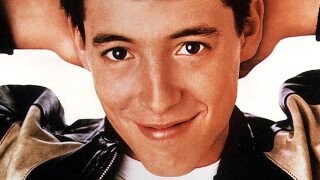‘So Go Get Somebody You Like’: Matthew Broderick Remembers His Clashes with John Hughes on the ‘Ferris Bueller’ Set

The writers of the “Save Ferris” water tower message should have saved some space for a fitting second half — “From John Hughes.”
When Ferris Bueller’s Day Off premiered in 1986, Matthew Broderick, then 24, was already an accomplished actor with a starring role in the sci-fi hit WarGames under his belt. But the Hughes classic about an enterprising slacker skipping school rocketed Broderick to 1980s superstardom. The path he took to get there, however, wasn’t exactly a walk in Highland Park.
On the most recent episode of The Hollywood Reporter’s podcast It Happened in Hollywood, Broderick revealed the backstage drama that often put him at odds with the Chicago suburbs’ most celebrated director. Broderick even revealed that he once told Hughes that he should recast the title role in the film if the director hated Broderick’s performance so much, dryly saying of the late coming-of-age legend, “He was not easygoing in some ways.”
Don't Miss
If only there was someone on set who could have told him to stop and smell the roses…
“I remember we did a costume test early on,” Broderick explained of the early tensions that arose while filming Ferris Bueller in 1985. “We walked around the streets of Chicago in our costumes and they filmed us — me, Alan (Ruck), Jennifer Grey and Mia (Sara). … When the footage came back, he said none of us were ‘fun to watch.’ We were ‘boring’ in our tests.” Broderick added a caveat, saying, “Actually, some of us he did like, but some he did not, and I was one he did not.”
Broderick was far from a starry-eyed newcomer by the time he joined Ferris Bueller, saying, “I had already done some work” by the time he joined Hughes’ project. “So to have him say, ‘I’m not used to having somebody be so dead,’ or whatever he said to me. I wasn’t really ‘in it’ or something. … That happened, and I said, ‘So get somebody you like.’”
“He was somebody who could get angry at you,” Broderick continued, saying that, while their first confrontation only lasted “half a day,” tensions resurfaced throughout the shoot. “Not outwardly angry, but you could tell. He would turn dead. Dead-faced, I would say, ‘What did you think of that?’ And he’d say, ‘I don’t know.’ Just nothing. ‘Okay, John doesn’t like that.’”
The passive-aggression threatened Broderick’s performance at times — he recalled another instance in which Hughes’ non-confrontational hostility became a problem, telling the story of an unspecified take, “(Hughes) said, ‘I like when your eyes go wide, and then smaller, and then go wide again.’ I said, ‘If you tell me exactly what my face is doing, I get kind of self-conscious. Now I’m thinking of my face.’ And he was like, ‘Well, then, I won’t direct you at all.’ … And for a few days he didn’t give me anything. Until I finally had to say, ‘John, you have to direct me, come on.’ That was our worst one.”
However, Broderick clarified that the friction between him and Hughes was simply in service of making Ferris Bueller the best film it could be, and he never took his boss’ snide comments to heart. “He took the work very seriously is what I mean,” Broderick said.
Maybe Hughes would have been more amenable to Broderick if he didn’t call in sick that one day just to headline that parade through downtown Chicago.